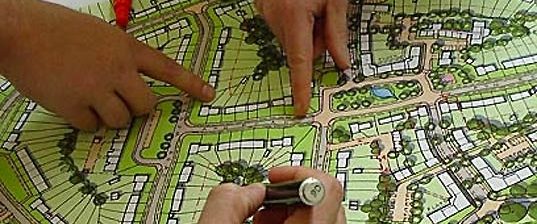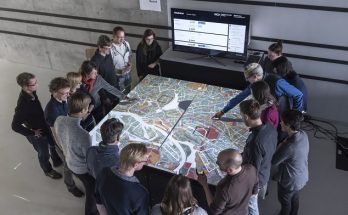Introduction
Highway engineering plays a crucial role in urban and regional planning, as it directly influences the development, connectivity, and functionality of urban and rural areas. The integration of highway engineering in urban and regional planning ensures efficient transportation systems, which are vital for economic growth, social integration, and environmental sustainability.

Highway Engineering: An Overview
A. Definition and Scope
Highway engineering involves the design, construction, and maintenance of roads, bridges, and tunnels to ensure safe and efficient transportation of goods and people. It encompasses various aspects, including traffic engineering, pavement design, and transportation planning.


B. Key Components
- Design and Construction: This includes geometric design, material selection, and structural analysis to build durable and safe highways.
- Maintenance and Operations: Ensuring the longevity and functionality of highways through regular maintenance and management.
- Traffic Engineering: Managing traffic flow, safety measures, and control systems to minimize congestion and accidents.
The Relationship Between Highway Engineering and Urban Planning
A. Connectivity and Accessibility
- Urban Mobility: Highways facilitate movement within urban areas, connecting residential zones with commercial, industrial, and recreational areas. Efficient highway systems reduce travel time and improve access to essential services.
- Regional Integration: Highways connect urban centers with rural areas, fostering economic activities and regional development. They enable the movement of goods, services, and labor, contributing to balanced regional growth.
B. Land Use and Development
- Influence on Urban Form: The design and placement of highways influence urban sprawl, density, and land use patterns. Properly planned highways can promote compact urban development, reducing environmental impact.
- Economic Growth: Highways stimulate economic activities by improving access to markets, reducing transportation costs, and attracting investments. They play a significant role in the location and growth of businesses and industries.
The Role of Highway Engineering in Regional Planning
A. Strategic Planning
- Transportation Networks: Regional planning involves creating comprehensive transportation networks that include highways, railways, and public transit. Highways are the backbone of these networks, ensuring regional connectivity.
- Infrastructure Development: Coordinated highway projects are essential for regional infrastructure development, supporting utilities, communication, and services.
B. Environmental Considerations
- Sustainable Practices: Modern highway engineering incorporates sustainable practices to minimize environmental impact, such as using eco-friendly materials and reducing emissions.
- Environmental Impact Assessments: Highway projects undergo environmental assessments to evaluate and mitigate potential negative impacts on natural habitats, water resources, and air quality.
Challenges and Solutions in Integrating Highway Engineering with Urban and Regional Planning
A. Challenges
- Traffic Congestion: Rapid urbanization leads to increased traffic congestion, requiring innovative highway designs and traffic management solutions.
- Environmental Degradation: Highway construction can lead to habitat destruction, pollution, and climate change impacts, necessitating sustainable engineering practices.
- Funding and Resource Allocation: Securing adequate funding and resources for highway projects can be challenging, especially in developing regions.
B. Solutions
- Smart Infrastructure: Implementing smart technologies, such as intelligent transportation systems (ITS), to optimize traffic flow and enhance safety.
- Public-Private Partnerships (PPPs): Leveraging PPPs to fund and manage highway projects, ensuring efficient use of resources.
- Community Involvement: Engaging local communities in the planning process to address their needs and concerns, promoting inclusive and sustainable development.
Conclusion
Highway engineering is integral to urban and regional planning, as it shapes the connectivity, accessibility, and overall functionality of urban and rural areas. By integrating sustainable practices and innovative solutions, highway engineering can address the challenges of urbanization and regional development, contributing to a more efficient, equitable, and sustainable future. Effective collaboration between highway engineers, urban planners, environmental managers, and policymakers is essential to achieve these goals and ensure the long-term success of transportation infrastructure.



